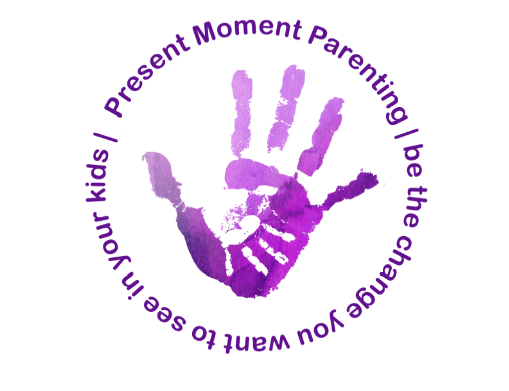
You may have a picture in your mind of a perfect child… of your perfect child. It may be a picture that you created a long time ago, before you even started procreating. Perhaps you saw other people's children and figured that you would do a way better job than them. Or perhaps you had a doll as a child and couldn't wait to grow up and play with your real doll – a walking, talking beautiful little girl that you could dress up and parade around town.
No matter how your perfect vision was formed, most of us hold within us an ideal. We fantasize about this lovely little being that dresses in whatever we provide and smiles sweetly at our friends, has impeccable manners, never throws tantrums, does well at school and sports and delights in helping us with the housework.
The thing is, at some point, you have to stop drooling over your fantasy and enter the real world, with your real child. And we must then wonder at how our real children feel about being compared to the fantasy child.
No matter how your perfect vision was formed, most of us hold within us an ideal. We fantasize about this lovely little being that dresses in whatever we provide and smiles sweetly at our friends, has impeccable manners, never throws tantrums, does well at school and sports and delights in helping us with the housework.
The thing is, at some point, you have to stop drooling over your fantasy and enter the real world, with your real child. And we must then wonder at how our real children feel about being compared to the fantasy child.
-We already know that we're not supposed to compare our kids to each other or to other people's children. It is somewhat obvious that this will affect their sense of self worth, and we realise that every child has different abilities and talents and things to be appreciated.
But how often do we compare our real children to these ideals of what children "should" be like?
How difficult is it for our real children to live up to these ideals? Fantasy children don't get sick, they don't back-chat, they always put their shoes on when asked, they behave appropriately in all situations, they brush their teeth without reminders, they play nicely with others and always share, they win medals and earn certificates, they control their emotions, and they don't pick their noses. I mean, we're not asking that much, are we?
So let me ask you this… How often do you live up to the ideal that you have for yourself? How often does your real life reflect the perfect one that you created in your mind? And more importantly, how do you feel when you compare yourself now to the self that you think you "should" be by now and find reality to be lacking?
It is almost always depressing to compare reality to perfection. Life is never perfect. It is always in a state of flux. We are always in a state of flux. Which means that at any given time you will have some kind of physical symptom, you will have something that you are working on or struggling with, there will be some area of your life that has been partially or wholly neglected. And this is as it should be. Life, you, and your child all have both Yin and Yang. And in this constantly changing life, these two are always shifting to maintain balance.
The thing is, when we create a fantasy in our minds, we tend to create it with only one side. And it is absolutely impossible to recreate this in reality when we live in a dual universe. And so we create goals for ourselves and our children that are unrealistic, and in the end harmful to our sense of well-being.
Real children are never going to become model fantasy ones. Never. Ever. Ever.
The sooner you can grasp that, the sooner you will see the beauty in the real, living, breathing, nose-picking child in front of you. The one who is trying so desperately to be noticed by you, to be really seen, right here right now. That child is aching to be loved as much as you love the "perfect" vision of them in your mind. That child is the one that is actually in your life.
Stop. Right now. And see your child.
See the real child who doesn't like sitting still. Not the fantasy child who can attach to a desk for 7 hours a day.
See the real child with ice cream smeared all over his face. Not the fantasy child who has a fantasy face cloth that follows him around.
See the real child who wears five different colours at once. Not the fantasy child who delights in your hand-picked designer outfits.
See the real child with dirt under her fingernails from making mud pies. Not the fantasy child with pristine cleanliness who just came out of a box.
See the real child thrashing on the floor in despair. Not the fantasy child who represses all emotion.
See the real child, actually in front of you right now, waiting for a hug. Not the fantasy child hovering in your mind, the one you can never touch.
When you really see your child, as they are, not as you wished they would be, then you will see true beauty for the first time. It is the very flaws and faults and inconsistencies that make something beautiful. It is the dying flowers on the orchid that point to its realness and make the ones in full bloom that much more fascinating.
Let go of the fantasy and embrace the real and prepare to be blown away!
But how often do we compare our real children to these ideals of what children "should" be like?
How difficult is it for our real children to live up to these ideals? Fantasy children don't get sick, they don't back-chat, they always put their shoes on when asked, they behave appropriately in all situations, they brush their teeth without reminders, they play nicely with others and always share, they win medals and earn certificates, they control their emotions, and they don't pick their noses. I mean, we're not asking that much, are we?
So let me ask you this… How often do you live up to the ideal that you have for yourself? How often does your real life reflect the perfect one that you created in your mind? And more importantly, how do you feel when you compare yourself now to the self that you think you "should" be by now and find reality to be lacking?
It is almost always depressing to compare reality to perfection. Life is never perfect. It is always in a state of flux. We are always in a state of flux. Which means that at any given time you will have some kind of physical symptom, you will have something that you are working on or struggling with, there will be some area of your life that has been partially or wholly neglected. And this is as it should be. Life, you, and your child all have both Yin and Yang. And in this constantly changing life, these two are always shifting to maintain balance.
The thing is, when we create a fantasy in our minds, we tend to create it with only one side. And it is absolutely impossible to recreate this in reality when we live in a dual universe. And so we create goals for ourselves and our children that are unrealistic, and in the end harmful to our sense of well-being.
Real children are never going to become model fantasy ones. Never. Ever. Ever.
The sooner you can grasp that, the sooner you will see the beauty in the real, living, breathing, nose-picking child in front of you. The one who is trying so desperately to be noticed by you, to be really seen, right here right now. That child is aching to be loved as much as you love the "perfect" vision of them in your mind. That child is the one that is actually in your life.
Stop. Right now. And see your child.
See the real child who doesn't like sitting still. Not the fantasy child who can attach to a desk for 7 hours a day.
See the real child with ice cream smeared all over his face. Not the fantasy child who has a fantasy face cloth that follows him around.
See the real child who wears five different colours at once. Not the fantasy child who delights in your hand-picked designer outfits.
See the real child with dirt under her fingernails from making mud pies. Not the fantasy child with pristine cleanliness who just came out of a box.
See the real child thrashing on the floor in despair. Not the fantasy child who represses all emotion.
See the real child, actually in front of you right now, waiting for a hug. Not the fantasy child hovering in your mind, the one you can never touch.
When you really see your child, as they are, not as you wished they would be, then you will see true beauty for the first time. It is the very flaws and faults and inconsistencies that make something beautiful. It is the dying flowers on the orchid that point to its realness and make the ones in full bloom that much more fascinating.
Let go of the fantasy and embrace the real and prepare to be blown away!







 RSS Feed
RSS Feed